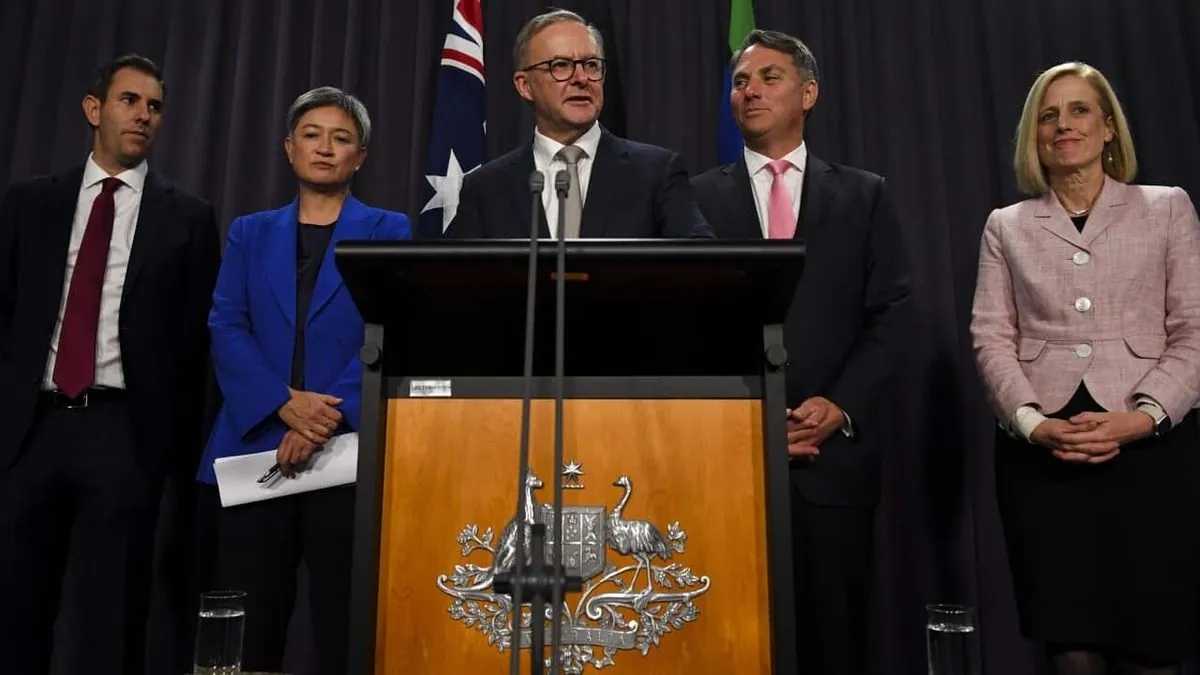Australia Elevates Terror Threat Level Amid Rising Extremism
Australia raises terror threat to "probable" due to increased extremist views. PM Albanese cites no imminent threat but urges vigilance as Middle East tensions contribute to decision.

Anthony Albanese, Australia's Prime Minister, announced on August 5, 2024, that the nation's terror threat level has been elevated from "possible" to "probable". This decision, based on advice from security services, reflects a growing concern over the rise of extremist ideologies within the country.
The shift in threat level indicates that security experts now estimate a greater than 50% likelihood of a potential onshore attack being planned within the next year. Despite this increase, Albanese emphasized that there is no immediate danger of an attack.
"The advice that we have received is that more Australians are embracing a more diverse range of extreme ideologies and it is our responsibility to be vigilant."
This change marks a return to the "probable" status, which Australia maintained for eight years before lowering it to "possible" in 2022. The decision to raise the threat level again comes in response to various factors, including ongoing tensions in the Middle East.
Mike Burgess, Director General of the Australian Security Intelligence Organisation (ASIO), highlighted the impact of the Israel-Hamas conflict that began on October 7, 2023. He noted that this situation has exacerbated grievances, sparked protests, and increased intolerance within Australian society.

Australia has experienced several violent incidents in recent months, some of which have been classified as extremist-motivated. A notable example occurred in April 2024, when a knife attack on an Assyrian church bishop and his followers in Sydney was designated as a terrorist act driven by suspected religious extremism.
The country's approach to counter-terrorism has evolved significantly over the years. Australia established its National Terrorism Threat Advisory System to provide clear and consistent information about the current threat level. The system consists of five levels, with "probable" being the third highest.
Australia's counter-terrorism efforts extend beyond its borders. The nation has actively participated in global initiatives, including operations in Afghanistan. Domestically, Australia implemented strict gun control laws following the 1996 Port Arthur massacre, which has been credited with reducing gun-related violence.
The country's security apparatus includes the ASIO, established in 1949, which plays a crucial role in gathering intelligence and assessing threats. Australia is also part of the Five Eyes intelligence alliance, collaborating with the United States, United Kingdom, Canada, and New Zealand.
To address the complex nature of terrorism, Australia has implemented various measures, including deradicalization programs in prisons and laws targeting foreign fighters returning from conflict zones. The nation also maintains a National Security Hotline for citizens to report suspicious activities.
While these efforts demonstrate Australia's commitment to national security, some of its counter-terrorism laws have faced criticism for potentially infringing on civil liberties. This ongoing debate reflects the challenges of balancing security concerns with individual rights in a democratic society.
As Australia navigates this elevated threat environment, the government continues to urge public vigilance while working to maintain social cohesion and address the root causes of extremism.


































